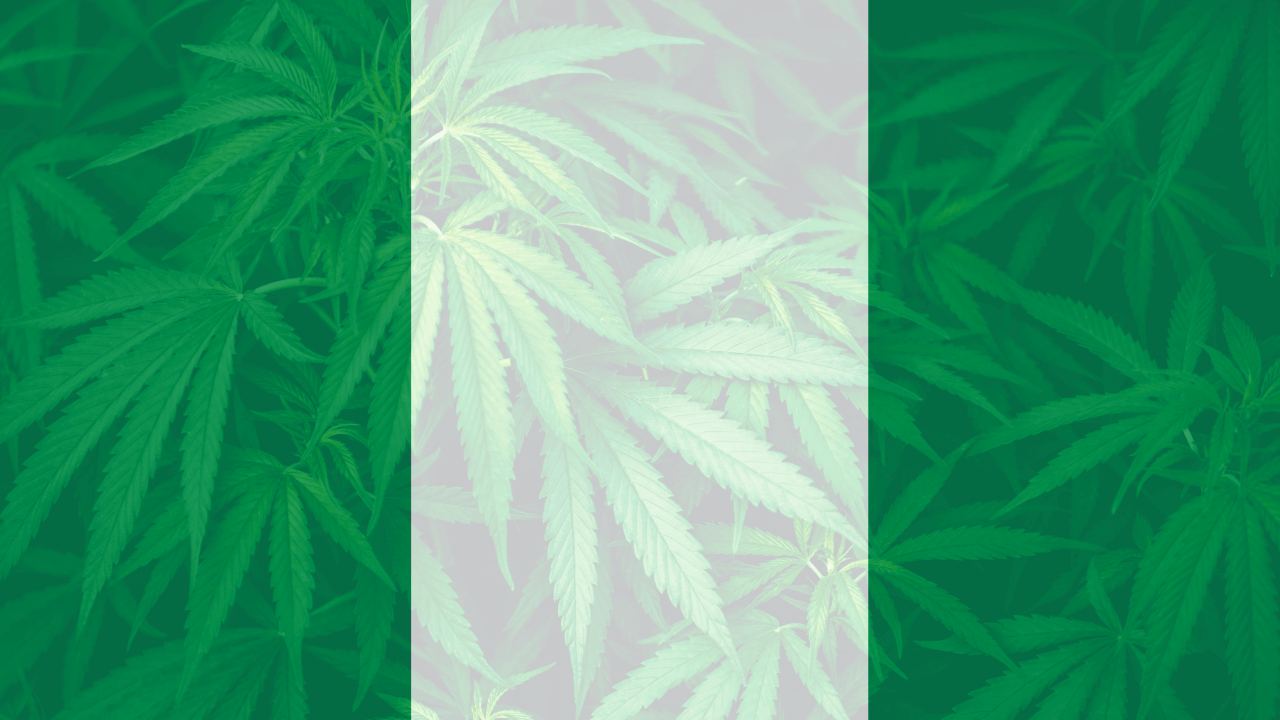Nigeria is one of the highest countries in the world for cannabis use with 10.6 million people using it in 2023. Although many people use cannabis in the country, it’s completely banned. The government has zero tolerance for it whether it’s for fun, medicine, or production.
So even though cannabis is common in Nigeria, it’s not allowed at all which has created a lot of debates on whether things should remain the same or change in the future.
Is Cannabis Legal in Nigeria? Legal Status in 2025

No, cannabis is strictly illegal in Nigeria. The National Drug Law Enforcement Agency (NDLEA) enforces laws that criminalize possession, sale, and cultivation under the NDLEA Act and the Indian Hemp Act of 1966. Even CBD a non-psychoactive compound derived from cannabis is prohibited.
1. Recreational Use
Cannabis for recreation is banned. Over 14% of Nigerian adults use cannabis regularly but can get 12-25 years in jail for possession.
Law enforcement agencies like NDLEA carry out raids to curb consumption but enforcement is inconsistent due to corruption and lack of resources.
2. Medicinal Use
Medical cannabis is not legal. Despite advocacy from groups saying it can help with epilepsy, chronic pain, and PTSD, there is no legal framework for prescriptions or research. In 2023, a bill to legalize medical cannabis was rejected by lawmakers over mental health concerns.
3. Industrial Use
Industrial hemp (used for textiles, biofuels, and construction) is illegal to grow or process. Nigeria’s underground cannabis market is booming, with farmers in states like Ondo and Edo growing it alongside other legal crops to avoid detection. Legalizing industrial hemp could tap into a $3.7 billion market but current laws block that.
Cannabis Usage and Its Impact in Nigeria
1. Recreational Drug Use
Cannabis is deeply rooted in Nigerian culture, we call it Igbo or Weed. Its popularity surged after WWII, popularized by soldiers and musicians like Fela Kuti. Today it’s a big black market commodity, rural farmers earn 10 times more from cannabis than from cocoa.
2. Mental Health Concerns
Those against legalization say cannabis causes psychosis and addiction. The NDLEA links drug use to Nigeria’s insecurity crisis, banditry, and kidnappings. However, the World Health Organization (WHO) acknowledges cannabis’s medical benefits, pain relief, and seizure control.
3. Industrial Cannabis Use
Illegal cultivation spans 133,500 hectares across 6 states and contributes nothing to the economy. If regulated, Nigeria could be rivaling Canada where the cannabis industry generates $4 billion annually.
Cannabis Cultivation in Nigeria
Nigeria is West Africa’s biggest cannabis producer. Farmers grow it in remote areas, sometimes intercrop with other legal crops to evade the authorities. The NDLEA destroys thousands of hectares yearly but farmers persist because of huge profits.
Law and Control of Cannabis in Nigeria
1. How Cannabis Laws Are Enforced
NDLEA leads enforcement but struggles with corruption, poor funding, and outdated training.
For instance, in 2011, a man was sentenced to 18 months for 8.8kg of cannabis after a long court battle.
2. The Illegal Cannabis Market
Nigeria’s illegal cannabis trade fuels crime and violence. Smugglers export to neighboring countries and make millions annually.
Legalization could kill this market and redirect the profits to taxed and regulated businesses.
Cannabis Penalties in Nigeria
| Offense | Penalty |
| Personal Use | 12–25 years imprisonment and 4+ years prison for smoking. |
| Trafficking | 21 years imprisonment for small scale and the death penalty (rarely enforced) for large scale. |
| Growing | Cultivation carries a 21-year minimum sentence or death under the Indian Hemp Act. |
Future of Cannabis Legalization in Nigeria
Pro-legalization advocates say Nigeria could make $197 billion by 2028 from medical cannabis. Bills to decriminalize it like Miriam Onuoha’s 2020 proposal are being opposed but the tide is shifting. Key steps to reform:
- Medical use to reduce reliance on imported drugs.
- Taxation to fund healthcare and education.
- Farmer licensing to transition illegal growers into the formal economy.
Nigeria’s cannabis laws are at a crossroads. While prohibition persists, the economic and medical potential of regulated legalization is undeniable. As global attitudes evolve, Nigeria may soon join countries leveraging cannabis for growth—but only if policymakers balance public health with progress.





